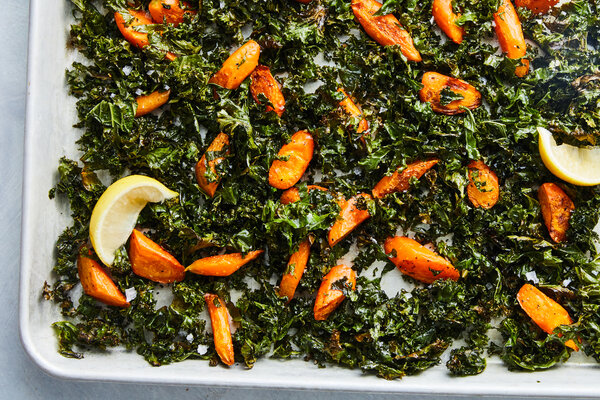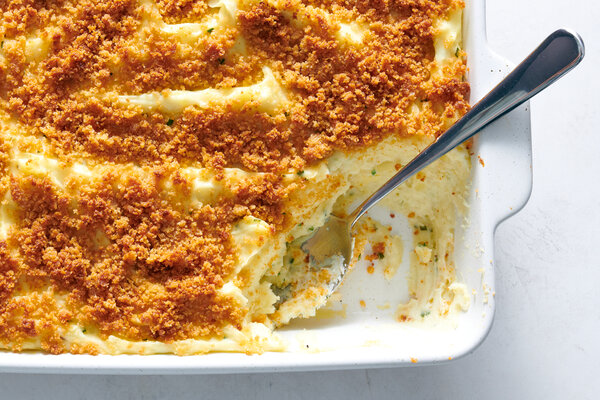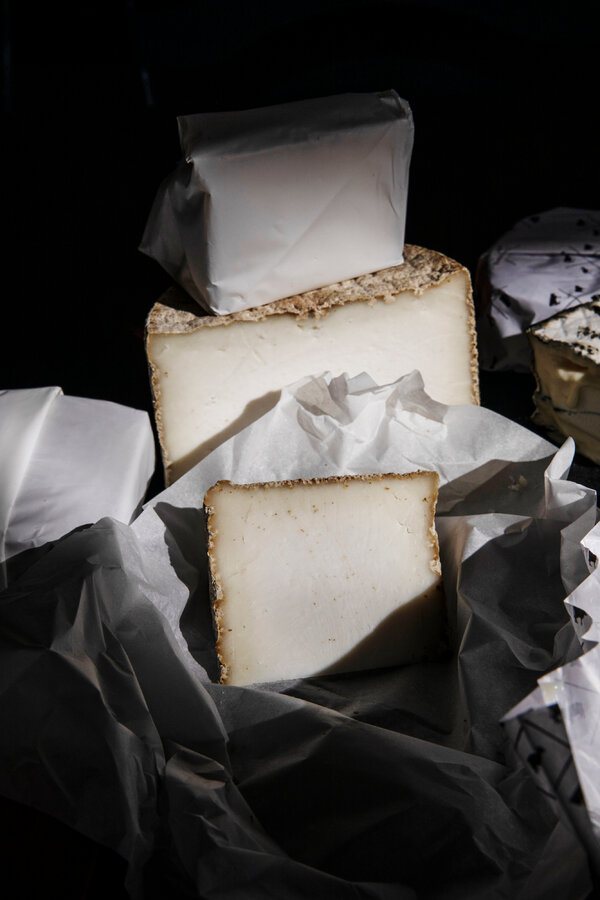In 2014, when I had my first meal at the Simone, you could have described it as slightly behind the times.
The pace was languid. The menus were handwritten. The chef, Chip Smith, molded regional American flavors over a frame of French technique. The dining room, on the ground floor of an Upper East Side townhouse, was about as loud as an Alpine forest during a light snowfall. Online, the Simone made almost no noise at all. You really had to search for its website, and it wasn’t listed on any of the reservation sites.
If you wanted to book a table, you had to pick up the phone and call Tina Vaughn, who owned the restaurant with Chip, her partner in life and business. She would write your name in a hardcover appointment book. The couple were still running the Simone this way when they closed it, in 2022, after failing to work out a renewed lease. And this is how they operate Eulalie, which they opened in TriBeCa in October.
A decade ago, refusing to take online reservations put them in a distinct minority. Today it makes them seem like members of an isolated religious sect.
It’s hard to remember now, but not long ago, smart restaurants saw the reservation phone call as a chance to make you feel welcome even if your meal was still a month away. The conversation was the start of something — if you were lucky, something nice.
Today it’s almost never that. Reservations are commodities. They’re bought, traded, set aside for American Express card holders, and scalped by whoever can build the fastest bot. At best, securing a prime table can make you feel like you’ve won some low-stakes game in the world’s most boring casino.
Eulalie is not part of this casino. It seems blithely clueless about TikTok trends, plating trends, wine trends and just about any other trend you can think of. It will probably strike some people as hopelessly dated. But I suspect that for many more, it will be a welcome break from the impersonal, transactional feeling so many New York restaurants leave you with these days.
Some sense of déjà vu will be inevitable for certain diners walking into Eulalie. (Oo-LAH-lee is how Ms. Vaughn says it.) Mr. Smith and Ms. Vaughn took over the lease on the West Broadway address from Drew Nieporent, who ran Bâtard there, and Corton before that, and Montrachet before that, which takes us back to 1985.
If you went to any of those places, you know the layout. There is the compact little bar by the entrance, where Ms. Vaughn’s reservation book will be lying open. The simple box of a dining room is just beyond. There are white linens everywhere, fewer than 40 seats, two antique chests of drawers bequeathed by the radio host Phil Schaap, and enough space between the tables for a square dance. The room has the soothing, muted look of a color card from Farrow & Ball.
Servers at Eulalie don’t tell you that they need the table back in 90 minutes. In fact, they seem determined to make you forget about the passing of time. Once you are settled, Ms. Vaughn makes her way to your table to offer you “a splash.” Typically this means half a glass or so of her favorite rosé at the moment, though it could be Champagne in a vintage coupe with a hollow stem.
Servers glide into sight bearing a slab of a rustic terrine — pork, chicken livers, and fat veins of foie gras the last time I saw it — made by Mr. Smith. It is very good.
Only at this point, when you’ve had something to eat and to drink, does the menu appear, written in a willowy cursive. For younger diners who never had to suffer through penmanship classes, the menu might as well be written in Cyrillic, but it describes a very simple proposition: the terrine you’ve just eaten, followed by an appetizer; then a poached flounder mousse with caviar in a few spoonfuls of creamy, anise-scented fish soup; and a main course. The price for this is $115 — more if you want cheese or dessert or wines paired with each course.
At the bottom are two notes:
“Welcome to our new home … and yours!”
And: “Please, cellphones tucked away!!” Curse you, modern technology! Note, however, that nobody said a word as I used my phone to photograph every dish and to Shazam a jazz tune playing so low that I wouldn’t have been able to hear at all if I hadn’t been sitting next to the speaker.
Mr. Smith comes from North Carolina, and good things happen in the kitchen when he goes back to his roots. He cooks an appetizer that merges the trotter croquettes known in France as cromesquis with Carolina barbecue. Surrounding a tower of pulled pork are Japanese turnips and their greens in a vinegar-spiked potlikker. Ms. Vaughn says she reserves standing tables for customers who come in at the same time every week and have done so for years. You’ll understand why when you taste these trotters.
There may be something a little Southern-fried, too, about Eulalie’s sweetbreads. Served with herbed carrots in an onion sauce, they have a more substantial crunch than they might in Lyon.
Substantial is the word when it comes to the main courses, too. Roasted venison saddle, farmed in Dutchess County, N.Y., is cut into slices that are nearly an inch thick, much leaner and slightly gamier than prime rib.
For a special one night Mr. Smith was poaching the meat of a whole lobster in butter, including two claws the size of a child’s mittens. This was surrounded by hen-of-the-woods mushrooms, chestnuts and butternut squash in several forms. It’s been a long time since I’ve seen butter-poached lobster, and even longer since I’ve had one as supernaturally sweet and tender as Eulalie’s.
Mr. Smith makes all the desserts himself, starting early in the morning. He’s always the first to arrive at the restaurant, his wife told us. Other things we learned from her: She used to be a Rockette, and she loves the documentary “Scatter My Ashes at Bergdorf’s.” She is not introverted, and if she senses that you are interested in chatting, she could — by which I mean that she almost definitely will — become a character in your night at Eulalie. In a lot of restaurants these days, it’s hard to tell who’s in charge. Often the answer is nobody, and you walk out convinced that nobody noticed or cared that you’d been there.
Ms. Vaughn cares. She owns the place and acts like it. So, in his way, does Mr. Smith, who slips into the dining room after the last table has been served.
First, though, he plates his desserts. When a Southern cook makes a coconut cake, you should probably try it, and Mr. Smith’s is a beauty, a white drum rolled in fresh meringue and shingled with curls of fresh coconut.
But keep your options open, because he sometimes makes a thing called a boca negra. It is like a cross between a bourbon ball and a molten chocolate cake. Molten chocolate cake, of course, went out of style a long time ago. But as far as I can tell, it didn’t stop being delicious.







